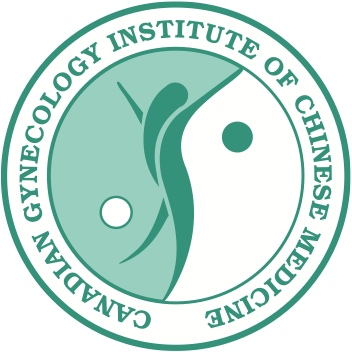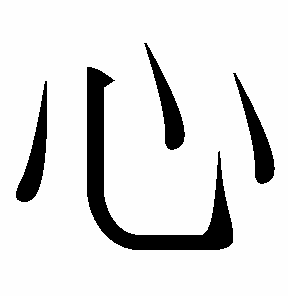When we think of the Heart, generally we think about the organ in the upper-left side of our chest that propels blood through our systems. In Chinese Medicine, the Heart means so much more! Heart is also ‘innermost being; mind; feeling, intention; centre, core’ and can also be known as the Shen. This is the Chinese character for Heart: xin. It looks a little like a heart, no?
Important Heart Facts
- It is the monarch – or king of the zang organs
- It dominates the Mind* (See Appendix)
- It is considered the house of the mind, master of the Blood, and governor of vessels
- It Qi propels the blood within the vessels, and regular heartbeats force the blood vessels to rhythmically contract
- The vitality of a person is due to their Shen and is a sign of the prognosis of an individual**
- The Heart condition manifests on the face***
- It opens into the tongue****
- It dominates the Yang Qi of the whole body*****
- It corresponds to summer*****
What does this all Mean?
For those of you who have ever had heart palpitations (or any other heart related illness), you might have also noticed that it is almost impossible not to worry about it, think about it, or be afraid of it. Thus, our hearts are closely linked to our state of mind. And vice versa, those with high anxiety or stress can influence the its function and the vessels, leading to palpitations in the short term and hypertension and hardening of the arteries in the long term. The Heart and the mind are interrelated and interconnected.
What does Love have to do with it?
Humor me for a moment…
Take a breath – in through your nose, feel the cool air as it fills your nasal passages and cools your head; let the breath fill to the top of your lungs, let your chest and ribs expand and let your diaphragm drop. As you breathe out, guide your breath down your body and out your toes. This is a gentle breath, no force, the trick is to let the breath relax and open the muscles.
Take another breath – same as the first but this time smile as you breathe: smile with your lips (even a small one will do), smile with your eyes (aka smeyes), smile with your mind – you should feel the muscles surrounding your skull to change and relax, especially those at the occiput (back of the head and near the neck.
Take one more deep breath, relax, smile, and let the smile relax into your Heart and let it become light.
This calms the mind and nurtures the Heart.
Now, take all of the rest of your breaths the same way and let the feeling of love and well-being that fills your Heart move and surround you and those around you.
Our Wish for You
From all of us here at CGICM, wishing you a holiday full of smiles and laughter, a time of peace and harmony, and a lifetime (and more) of love.
Caroline Prodoehl, D.Ac., TCMP
References
Juliano, Kevin (2008). Lecture Notes for TCM 101: Theory and Diagnostics I. TorontoSchool of Traditional Chinese Medicine. Toronto, Ontario.
Appendix
* “In traditional Chinese medical theory, the term ‘mind’ is an abstract concept. In the broad sense, it refers to the outward activities of life and is a collection of physiological activities. It means the vitality of the body, appearance, complexion, expression of the eyes, speech, responsiveness, etc… In the narrow sense of the phrase, it refers to such activities of spirit, consciousness and thinking. Modern physiology holds that these mental activities are attributable to the physiological function of the brain, which is a reflection of the brain processing the external environment. However, from a holistic viewpoint, TCM believes that these mental activities are attributable to the physiological function of the internal organs respectively. Therefore, consciousness is classified into five aspects, which correspond to the five zang. Thus, chapter 23 of the Su Wen States:
- The Heart stores the Shen (Spirit)
- The Lung stores the Po (Corporeal Soul)
- The Liver stores the Hun (Ethereal Soul)
- The Spleen stores the Yi (Intention/Thought)
- The Kidney stores the Zhi (Will)” (Juliano, p. 74)
This gives the idea that the emotions and physiological interactions are interconnected and can influence each other. In other words, the organs constitute the physiological and metabolic functions of the body, including hormonal regulation – the brain is the interpreter of this information.
** “If a person is ill but has bright eyes, normal bearing, clear speech and responds coherently to inquiry, the condition is spirited… if there is lack of mental energy, apathy, abnormal bearing, torbid expression, dark complexion, dull eyes, low voice, slow, halting speech and incoherent response to inquiry, these are all signs of spiritlessness.” (Juliano, 75)
*** “Because the face has an abundance of blood vessels and tender skin, changes in the complexion of the face can indicate the condition of Heart Qi and Heart Blood.” (Juliano, 76)
**** “The large collateral of the Heart meridian of the hand ShaoYin extends to the root of the tongue, and the Qi and Blood of the Heart arrive at the tongue through the meridians, maintaining the normal function and appearance of the tongue. The tongue dominates taste and expression of the speech. If the Heart functions well, the tongue texture will be red and moist, soft and flexible, sensitive to taste and coherent to speech.” (Juliano, p. 76-77)
***** “Located above the diaphragm, in the upper jiao, the Heart is classified as a Yang natured zang… Because summer is the season filled with the most Yang energy and because the Heart is the most Yang of the zang organs, they are said to correspond to each other.” (Juliano, p. 77)

